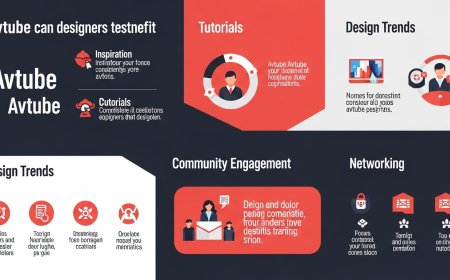Phishing Simulations Made Easy| Employee Data Protection Guide
Learn how phishing simulations and ongoing security training help reduce human error and strengthen your company’s data protection strategy.

In todays digital age, businesses face growing cyber threats. Among them, phishing remains one of the most common and dangerous attacks. It only takes one click on a fake email to expose your companys sensitive data. Thats why phishing simulations and strong training security awareness are essential for protecting employee and company data.
In this guide, well explore how phishing simulations work, the role of employees in data protection, and how partnering with experienced IT managed service providers can streamline your cybersecurity efforts.
Understanding Phishing Attacks
Phishing is a cybercrime where attackers trick individuals into giving away personal or financial information by posing as a trustworthy source. These messages often look like theyre from banks, colleagues, or government services.
Common types of phishing include:
- Spear phishing targeted attacks that use personal information to gain trust
- Clone phishing a copy of a genuine email with malicious links
- Whaling attacks aimed at executives or high-level staff
- Smishing and Vishing text or voice-based phishing attempts
Phishing attacks are designed to look real, and even tech-savvy users can fall victim if theyre not alert. Thats where proactive training and simulations become vital.

The Importance of Training Security Awareness
Cybersecurity isnt just about having strong firewalls or antivirus software. People are often the weakest link. Thats why building a culture of awareness within your organisation is essential.
Training security awarenessinvolves educating employees about threats, teaching them how to spot suspicious behaviour, and giving them the confidence to report potential breaches.
Regular phishing simulations are an important part of this training. They help employees recognise real-world threats in a safe environment and allow businesses to identify areas of improvement.
Effective training should:
- Be ongoing, not just once a year
- Include interactive sessions and examples
- Be tailored to different roles and departments
- Encourage reporting without fear of punishment
How Phishing Simulations Work
Phishing simulations are fake phishing campaigns created to test and train employees in a safe and controlled way. They mimic real threats to assess how staff respond and provide feedback that helps them learn.
The typical process includes:
- Creating a fake email This could be a link to a fake login page or an attachment
- Sending the email to selected employees Usually without prior warning
- Monitoring actions Whether the user clicks the link, enters credentials, or reports it
- Reviewing results Analysing which employees responded correctly or fell for the trap
- Providing follow-up training Especially for those who interacted with the fake threat
The key is to make simulations a regular part of training, and to focus on learning rather than blame. Over time, employees become more aware and quicker to report real threats.
Sample Phishing Simulation Schedule for SMEs
Heres a sample plan that small to mid-sized businesses can adopt to improve employee readiness:
|
Week |
Simulation Type |
Key Lesson |
Follow-up Training |
|
Week 1 |
Link-based phishing email |
Never click unknown links |
Spotting suspicious links |
|
Week 2 |
Credential phishing |
Login pages can be faked |
Strong password management |
|
Week 4 |
Malicious attachments |
Files can carry viruses |
Email attachment safety training |
|
Week 6 |
Spear phishing |
Personalised emails can mislead |
Verifying senders and requests |
This approach ensures that training is spread out and targeted at various techniques used by cybercriminals.
How IT Managed Service Providers Can Help
Managing phishing simulations, monitoring security performance, and providing ongoing training can be time-consuming. This is whereIT managed service providers Londonplay a key role.
They offer tailored services that include:
- Deploying phishing simulations and analysing results
- Running awareness campaigns for all staff
- Offering technical support for email filtering and endpoint security
- Ensuring compliance with industry standards like GDPR and Cyber Essentials
These providers have access to the latest threat intelligence and can adapt training content quickly to respond to new tactics.
Moreover, they bring expertise that many small businesses lack in-house. Their services often include dashboards, reporting tools, and automated training modules, making security awareness simple and effective.
Common Mistakes in Phishing Awareness Programmes
While many businesses understand the need for training, they often make mistakes that reduce its effectiveness:
- One-time training sessions: A single workshop is not enough. Threats evolve constantly.
- Blaming employees: Shaming staff who click on phishing emails can reduce reporting.
- Lack of follow-up: Simulations should be followed by training to correct mistakes.
- Generic training: Different roles face different threatstraining should reflect that.
Instead, security awareness should be part of the company culture, not a checkbox exercise.

Building a Culture of Vigilance
Creating a workplace culture where every employee feels responsible for cybersecurity can make a huge difference. Here are a few ways to encourage this:
- Recognise employees who correctly report phishing attempts
- Make reporting easy, through simple email or intranet tools
- Use gamification, like quizzes or leaderboards, to boost engagement
- Involve departments in designing simulations relevant to their roles
Even small actions, like weekly email tips or posters in shared spaces, can keep cybersecurity on everyones radar.
Final Thoughts: Continuous Training Is the Best Defence
Cyber threats are evolving, and phishing scams are becoming increasingly sophisticated. To stay protected, businesses must invest in continuous security awareness training. Phishing simulations offer a practical, risk-free way to test and strengthen your teams defences. Over time, these exercises build a more vigilant workforceyour first and most important line of defence. With human error responsible for many data breaches, regular training is no longer optional. Its essential. Partnering with experienced IT managed service providers in London makes this process simpler and more effective.
To enhance your cybersecurity readiness, contact Renaissance Computer Services Limitedyour trusted partner in protecting both your data and your people.
















































